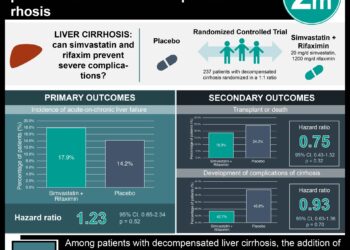Modelling study suggests that statins may be overprescribed
1. This study showed that the net benefit of statins compared to risk varied considerably with respect to the age of the patient, patient sex and the type of statin utilized.
2. This modeling study suggested that statins may be overprescribed even among at-risk patients.
Evidence Rating Level: 3 (average)
Study Rundown: High cholesterol is a common medical concern among older adults and is often treated with a statin medication. Statins reduce the production of cholesterol, but are also associated with potential side effects. The authors of this study conducted a study using a computer model to assess prescription habits regarding statin medications. The study also identified the expected risk under which statins do not provide net benefit. Generally, this modelling study suggested that statins may be significantly overprescribed in that it showed that a net benefit of statins was derived at a higher than expected risk level. The main limitation of this study was that not all age-specific data for all components of the study were available.
Click to read the study in Annals of Internal Medicine
Relevant Reading: Genetic risk, coronary heart disease events, and the clinical benefit of statin therapy: an analysis of primary and secondary prevention trials
In-Depth [modeling cohort]: The authors conducted a quantitative benefit-harm balance modeling study to assess the use of statins for primary prevention of cardiovascular disease. The population cohort consisted of adults aged 40 to 75, without a previous history of cardiovascular events. A network meta-analysis of primary prevention trials was completed, looking at a treatment group with low to moderate-dose statin compared to no statin. The authors found that among men aged 45 to 49 a net benefit were achieved at a 10-year cardiovascular risk of 15% for atorvastatin. This number was 18% for rosuvastatin, 19% for pravastatin and 21% for simvastatin. Furthermore, the risk required for net benefit among women was higher (17% for ages 40 to 44 years and 22% for ages 70 to 75 years).
Image: PD
©2018 2 Minute Medicine, Inc. All rights reserved. No works may be reproduced without expressed written consent from 2 Minute Medicine, Inc. Inquire about licensing here. No article should be construed as medical advice and is not intended as such by the authors or by 2 Minute Medicine, Inc.







